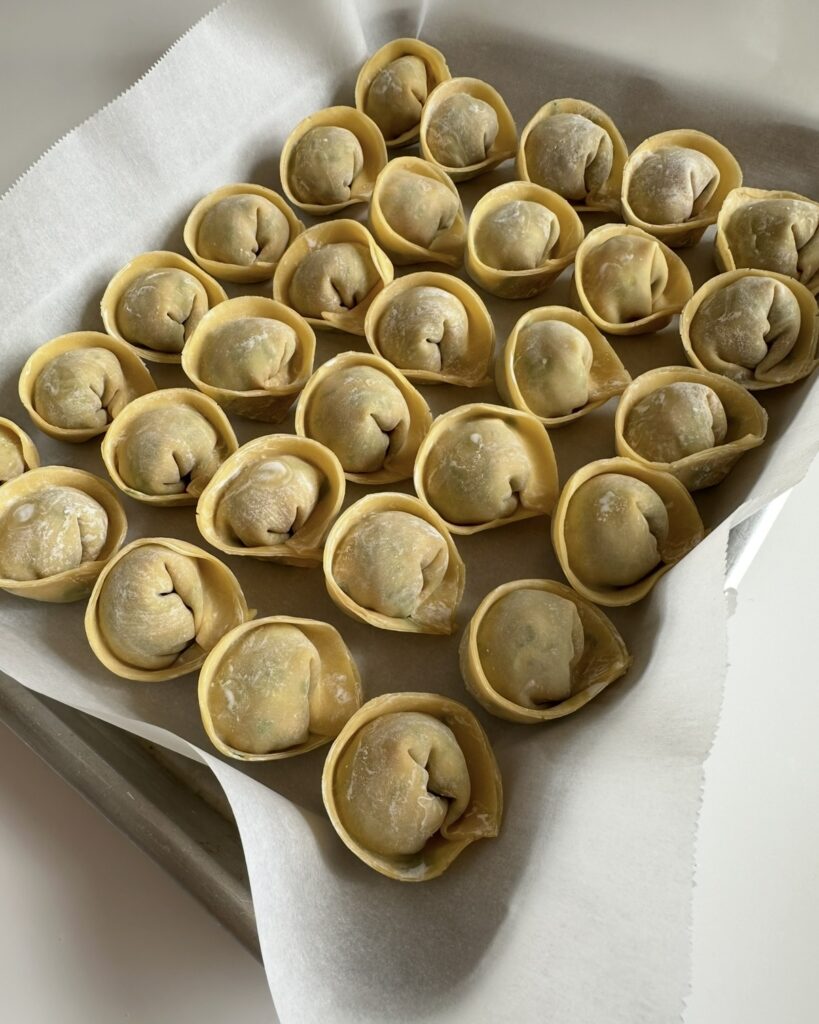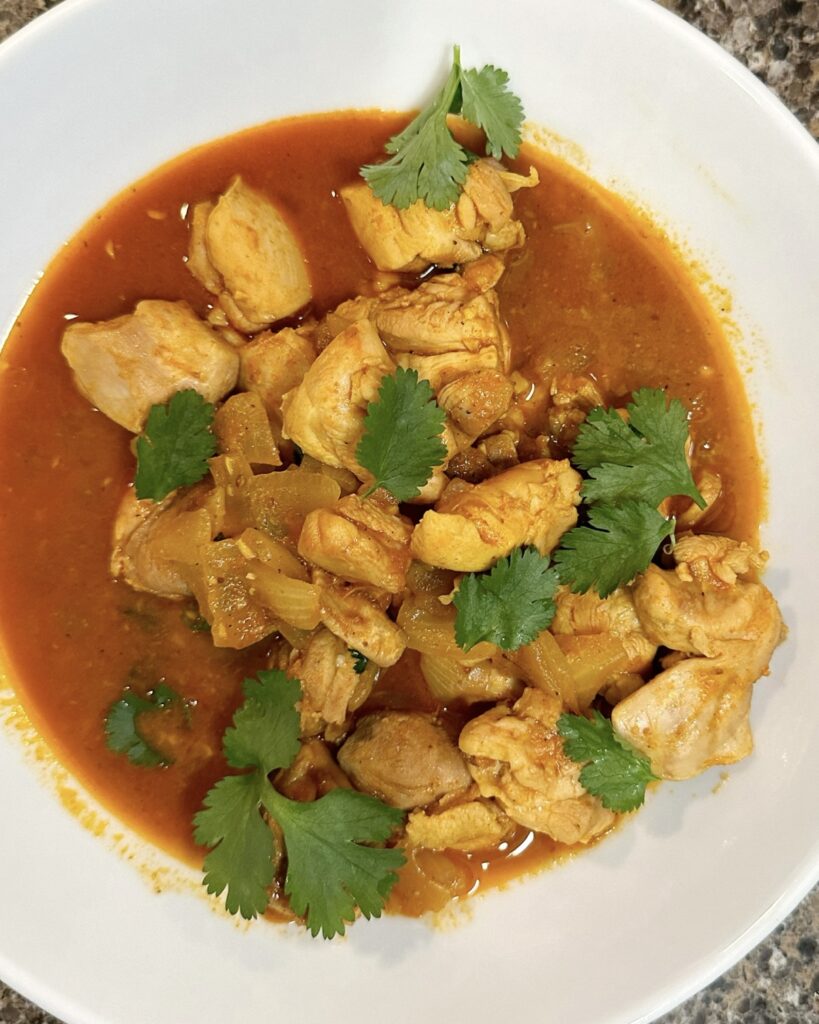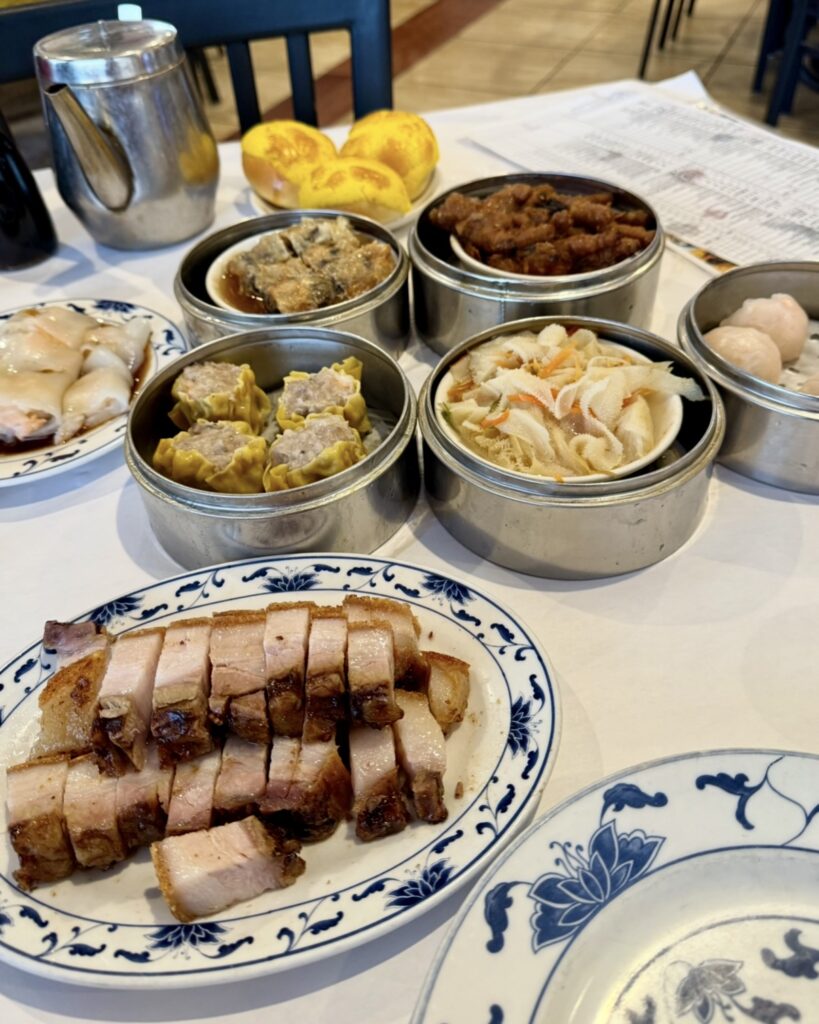When words aren’t right, or aren’t enough.
Food has always been my love language. It’s how I’ve said thank you, let’s celebrate, I thought of you, I hope you feel better, I love you. The form varies from store-bought supermarket cupcakes to homemade paella, but the act itself has always been the same. Offering someone food is offering them nourishment. Something that, even if for just a moment, feels like love.
I feel a particular sense of satisfaction in feeding someone. Watching them eat, noticing their little food happy dance, seeing the way their shoulders drop just a little after the first bite, hearing the hum of approval as they go back for more. Food cuts through the walls that words sometimes hit. You don’t need to craft the perfect sentence to show affection or support; you can just hand someone a plate of delicious food. You can make your cousin’s favorite Thanksgiving dish, that you usually don’t make, because you care. You can give homemade snickerdoodles to your neighbors because you want to share the Christmas spirit. I feel this joy even when I didn’t personally make the food; if what I ordered at a restaurant is delicious, you bet I’ll offer a bite to everyone at the table.

I often think about how food is tied to memory and belonging. Recipes are like love letters passed down generations, sometimes in exact measurements, sometimes just in the muscle memory of how much spice to add “until it smells right”. Anyone who’s ever asked an Asian mom for a recipe knows exactly what I mean. Cooking is never just about the meal. It’s about who you were when you first tasted it, who you were when you first learned how to make it, and who you’re with when you make it again. Maybe that’s why I’m so hell-bent on recreating my favorite dishes from childhood.
I feel this most vividly when I make chicken curry. My late mother-in-law made chicken curry for me whenever we went to her house — because I, in particular, loved her chicken curry. (I also grew up eating a very similar version of chicken curry. Burmese food has a lot of similarities to some Indian food.) When the pandemic had us all in lockdown in 2020, we realized we didn’t know when we would next have Mom’s food. So we asked her to film herself cooking, so that we would learn how to make her recipes and be able to replicate them at home. Not the same as having her home cooking, but we would hopefully make a decent facsimile to tide us over until we could visit again. I watched that video more times than I can count, pausing and rewinding, trying to translate her handfuls and pinches and “one teaspoon” (that was actually just a random green spoon in her kitchen) into written measurements.

Little did we know that that would be one of our favorite ways to remember my mother-in-law and honor her. Every time I cook that curry, I’m not just feeding us. I’m keeping her present at the table. The recipe isn’t just instructions; it’s her love letter, written in garlic and ginger and haldi and jeera. Every bite is a reminder that she loved us, that we loved her, and that love can live on through something as simple as a pot of curry.
Food isn’t only how I give love — it’s also how I’ve received it. A month or so after my dad died, I stopped into one of our favorite Chinese takeout spots in town. The owner, Peter, welcomed me in and said, “I haven’t seen you in a while.” I told him, “Yeah, we’ve been out of town a lot. My dad was sick, and he passed away.” Peter nodded, handed me my order, and said, “Take it.” No fuss or grand gesture, just a simple act of kindness in the form of beef and broccoli, fried rice, and hot and sour soup. I almost cried right there at the counter. Because food is love.
If my mother-in-law’s curry taught me that food can carry memory forward, that night at the takeout counter reminded me food can also hold you when everything falls apart. Food carries love in ways that words can’t always reach. Whether it’s a family recipe or a carton of pork fried rice, the message is the same: You are cared for.

Food doesn’t erase grief or solve problems, but sure makes things easier to deal with. It gives us something warm to hold when everything else feels uncertain or shitty. It creates a moment of connection. Fleeting, maybe, but real enough to remind us that life is still here, and so is love.
What’s interesting about food as a love language is its impermanence. The meal disappears, sometimes in minutes. The plates are cleared, the leftovers stored in mismatching tupperware, the flavors only lingering faintly in the air. But the love doesn’t vanish with the meal. It leaves an imprint: a memory, a feeling of being cared for, a moment of connection.
Food nourishes the body, and it nourishes the heart. It’s the language that doesn’t need words, a universal way to say: you are loved.
Leave a Reply